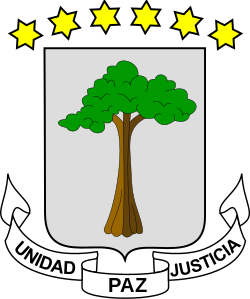This article has an unclear citation style .(January 2024) |
 |
|---|
The Ministry of Defence (Spanish : Ministerio de Defensa) is a department of the Government of Equatorial Guinea responsible for military administration. It is the administrative and executive body of the Armed Forces of Equatorial Guinea. It is under the supervision of the Vice President of Equatorial Guinea in charge of National Defense and Security, Teodoro Nguema Obiang Mangue. [1]